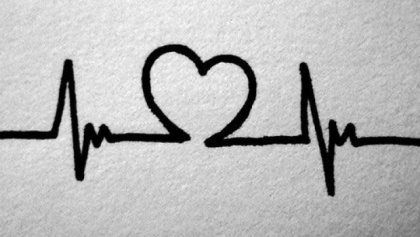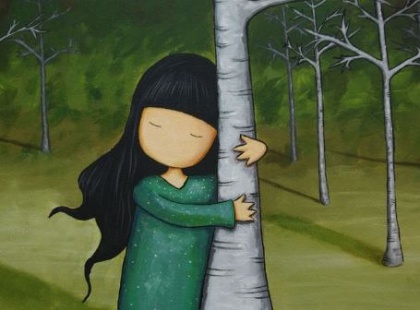When We Hold Grudges, We Die A Little Inside

A daughter arrives home and says to her father:
– Dad, I can’t stand our neighbor anymore! I want to kill her, but I’m afraid someone will find out. Can you help me?
The father responds:
– Of course my love, but on one condition: you have to make peace with her so that nobody suspects you when she dies. You have to be very careful, kind, grateful, patient, warm, less selfish, always give back, listen to her more. Do you see this powder? Every day, put a little bit in her food. Then she’ll die slowly.
After 30 days, the daughter says to the father:
– I don’t want her to die anymore. I love her. Now what? How can I stop the effect of the poison?
The father responds:
– Don’t worry! The powder I gave you was rice powder. She won’t die, because the poison was inside of you all along.
When we hold grudges, we die a little inside.
We must learn to make peace with whoever offended or hurt us.
We must learn to treat others the way we would want to be treated. We must learn to take the initiative to love, to give, to donate, to serve, instead of just wanting to gain and be served.
-Anonymous-

When somebody hurts you, is as though you’ve been bitten by a snake. But no matter if the wound is big or small, it can always be closed and healed.
Just as therapist José Antonio García points out, the most common poisons are revenge, an eye for an eye, and the search for justice at any cost. These poisons can be acting within us for years, eating away at us from the inside, causing us to lose happiness and hope.
Holding grudges is human. But so is forgiving. And making mistakes. They say that whoever doesn’t love, doesn’t forgive. It’s love that is responsible for forgiveness. Love for other people, for life, for the world, and for ourselves.
True forgiveness cannot happen if there’s no loving intention behind it. The primary motive of forgiveness could be friendliness or responsibility, but whatever it is, the only way to achieve it is through love.
In some ways, forgiveness is synonymous with freedom. If we’re not held down by grudges, fear, or hatred towards someone else, there will be nothing left to justify living locked inside the jail of resentment.
In fact, we will only have healed our emotional wounds when talk about our past and our pain without shedding tears. But forgiveness does not mean we have to erase the past or that we’ll forget the pain. Forgiveness is creating a new way to remember and look at the present and future.

Forgiveness is necessary for emotional freedom
Forgiveness is essential to achieving emotional freedom and, with it, a sense of mental wellbeing. It might take a lot of effort, but it’s the only way to heal ourselves. Read the following tips on how to do so:
1. Acknowledge your pain.
This is the only thing that will let you distance yourself emotionally and rebuild empathy towards the person who hurt you. Doing so will allow you to analyze what might have motivated them to act that way, which will help to reduce the need to blame the other person and accuse them of having certain intentions.
2. Choose to forgive.
For this, we’ll use the metaphor of the fishhook as an example.
When people hurt us, it’s like they’ve impaled us in the gut with a fishhook, causing an immense amount of pain. We want them to get what they deserve, to make them feel the way they made us feel, to stab them with the same fishhook, an act of justice that would make them suffer just like we did. We would do it while keeping in mind all the pain they caused us and how much it hurts to be attached to this hook. If we try to impale them too, we will still be hooked to it. If we succeed in hooking them, they’ll end up standing between us and the end of the hook, which means we’ll have to take them off before we can get off ourselves.
If we take ourselves off of the hook, we’ll have to be careful to not get too close to the other person, or else they’ll put us back on, and once we get close to them again, we have to trust that they won’t hurt us again. But it’s not a lack of suffering that justifies the decision, but rather what you want in the long term.

3. Accept suffering and anger.
It’s normal to feel angry and hurt, but the only way to stop hurting is to unite our conflicting emotions, feelings, and thoughts.
4. Protect yourself.
When we analyze what happened and give way to forgiveness, we still have to pay attention to signs of danger. We must be aware and alert so we can protect ourselves from future harm.
5. It’s not enough to say “I forgive you.”
Any statement or expression can be empty of meaning. This happens a lot; we think we’ve forgiven them, but our resentment continues to grow inside us.
Forgiveness is not said; it’s felt. If negative thoughts, feelings, and emotions keep repeating themselves, we should do the whole process over again. And it will be this way until we can rid ourselves of the pain that’s eating away at our character.
We have to carry our memories with us, but not on our pain. Life will be so much easier if we live it this way.
A daughter arrives home and says to her father:
– Dad, I can’t stand our neighbor anymore! I want to kill her, but I’m afraid someone will find out. Can you help me?
The father responds:
– Of course my love, but on one condition: you have to make peace with her so that nobody suspects you when she dies. You have to be very careful, kind, grateful, patient, warm, less selfish, always give back, listen to her more. Do you see this powder? Every day, put a little bit in her food. Then she’ll die slowly.
After 30 days, the daughter says to the father:
– I don’t want her to die anymore. I love her. Now what? How can I stop the effect of the poison?
The father responds:
– Don’t worry! The powder I gave you was rice powder. She won’t die, because the poison was inside of you all along.
When we hold grudges, we die a little inside.
We must learn to make peace with whoever offended or hurt us.
We must learn to treat others the way we would want to be treated. We must learn to take the initiative to love, to give, to donate, to serve, instead of just wanting to gain and be served.
-Anonymous-

When somebody hurts you, is as though you’ve been bitten by a snake. But no matter if the wound is big or small, it can always be closed and healed.
Just as therapist José Antonio García points out, the most common poisons are revenge, an eye for an eye, and the search for justice at any cost. These poisons can be acting within us for years, eating away at us from the inside, causing us to lose happiness and hope.
Holding grudges is human. But so is forgiving. And making mistakes. They say that whoever doesn’t love, doesn’t forgive. It’s love that is responsible for forgiveness. Love for other people, for life, for the world, and for ourselves.
True forgiveness cannot happen if there’s no loving intention behind it. The primary motive of forgiveness could be friendliness or responsibility, but whatever it is, the only way to achieve it is through love.
In some ways, forgiveness is synonymous with freedom. If we’re not held down by grudges, fear, or hatred towards someone else, there will be nothing left to justify living locked inside the jail of resentment.
In fact, we will only have healed our emotional wounds when talk about our past and our pain without shedding tears. But forgiveness does not mean we have to erase the past or that we’ll forget the pain. Forgiveness is creating a new way to remember and look at the present and future.

Forgiveness is necessary for emotional freedom
Forgiveness is essential to achieving emotional freedom and, with it, a sense of mental wellbeing. It might take a lot of effort, but it’s the only way to heal ourselves. Read the following tips on how to do so:
1. Acknowledge your pain.
This is the only thing that will let you distance yourself emotionally and rebuild empathy towards the person who hurt you. Doing so will allow you to analyze what might have motivated them to act that way, which will help to reduce the need to blame the other person and accuse them of having certain intentions.
2. Choose to forgive.
For this, we’ll use the metaphor of the fishhook as an example.
When people hurt us, it’s like they’ve impaled us in the gut with a fishhook, causing an immense amount of pain. We want them to get what they deserve, to make them feel the way they made us feel, to stab them with the same fishhook, an act of justice that would make them suffer just like we did. We would do it while keeping in mind all the pain they caused us and how much it hurts to be attached to this hook. If we try to impale them too, we will still be hooked to it. If we succeed in hooking them, they’ll end up standing between us and the end of the hook, which means we’ll have to take them off before we can get off ourselves.
If we take ourselves off of the hook, we’ll have to be careful to not get too close to the other person, or else they’ll put us back on, and once we get close to them again, we have to trust that they won’t hurt us again. But it’s not a lack of suffering that justifies the decision, but rather what you want in the long term.

3. Accept suffering and anger.
It’s normal to feel angry and hurt, but the only way to stop hurting is to unite our conflicting emotions, feelings, and thoughts.
4. Protect yourself.
When we analyze what happened and give way to forgiveness, we still have to pay attention to signs of danger. We must be aware and alert so we can protect ourselves from future harm.
5. It’s not enough to say “I forgive you.”
Any statement or expression can be empty of meaning. This happens a lot; we think we’ve forgiven them, but our resentment continues to grow inside us.
Forgiveness is not said; it’s felt. If negative thoughts, feelings, and emotions keep repeating themselves, we should do the whole process over again. And it will be this way until we can rid ourselves of the pain that’s eating away at our character.
We have to carry our memories with us, but not on our pain. Life will be so much easier if we live it this way.
This text is provided for informational purposes only and does not replace consultation with a professional. If in doubt, consult your specialist.







